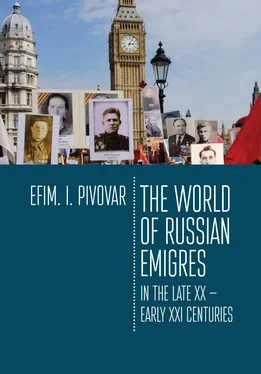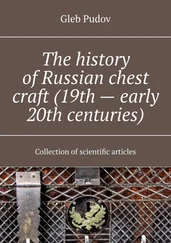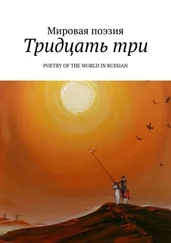In April 2015, the Alexander Solzhenitsyn House of Russia Abroad held an exhibition “Russians in Lebanon” to commemorate the 70th anniversary of the establishment of diplomatic relations between Russia and Lebanon. The exhibition was organized by the House of Russia Abroad, the Russian Center for Science and Culture in Beirut and the Lebanese Cultural Orthodox Imperial Society, with the support of the Embassy of the Russian Federation in the Lebanese Republic, the Embassy of the Lebanese Republic in the Russian Federation and the Imperial Orthodox Palestine Society. The exhibition presented unique artifacts from Lebanese and Russian archives, museums, libraries, and private collections related to Russian travelers visiting Lebanon, as well as the lives and activities of Russian diplomats, sailors, scientists, and entrepreneurs in Lebanon in the 19 thand 20 thcenturies, including the life of the Russian community of Beirut, which primarily consisted of the first wave of Russian emigrants and their descendants. A separate section of the exhibition was devoted to the cultural and educational activities of the IOPS in Lebanon, including the Madaris Moscobiyeh (Moscow schools), which are still remembered with gratitude by the Lebanese intellectuals (many graduates of these schools now belong to the intellectual elite of the country). The concept of the exhibition and selection of exhibits was developed by representatives of the community of Russian compatriots in Lebanon, headed by Tatiana Baher (Kuvasheva), who had dedicated many years to the study of historical and cultural heritage of Russians in Lebanon. Speaking at the opening of the exhibition, the Director of the House of Russia Abroad Viktor Moskvin emphasized the role of the Imperial Orthodox Palestine Society in the preparation and implementation of this project.
The Imperial Orthodox Palestine Society acts as an additional link between the diasporas of the Russian world in Greece, Serbia, Bulgaria, France and other countries where Russian diasporas have preserved Orthodox pilgrimage traditions. For example, in October 2015, Sergei Stepashin visited the Russian House (Russian Centre of Science and Culture) in Belgrade to discuss the prospects for joint cultural and educational activities between IOPS and the Russian Centre of Science and Culture in Serbia. The Palestine Society enjoys well-deserved authority among the intellectual elite of the Russian community abroad, enabling its members to contribute to the further successful cooperation within the global Russian world, in particular, relying on the leading international organizations of the Russian community abroad.
The IOPS periodicals (Orthodox Palestinian Collection and The Messenger of Jerusalem), research projects, international conferences held under the auspices of the Palestinian society are of great interest to many Russian compatriots abroad, both for theological scholars and artists who belong to the intellectual elite and for a wider Russian-speaking community.
In November 2015, the Chair of IOPS Sergei Stepashin held a meeting with an eminent representative of Russia abroad, Count Pyotr Sheremetev, Honorary President and Member of the Board of the International Council of Russian Compatriots and Rector of the Sergei Rachmaninoff Russian Conservatory of Paris. In 1960-1970s, Pyotr Sheremetev became renowned as an architect who designed a number of buildings in France and in the capitals of Arab countries. As a representative of the Russian emigrant community, Pyotr Sheremetev made significant efforts to preserve monuments of culture and art: in particular, he contributed to the decision of Paris authorities to allocate 1.2 million francs for the restoration of the St. Alexander Nevsky Cathedral, the center of the Orthodox community in the Russian Paris. In 1979, he visited the USSR for the first time, and in 2002 he was granted Russian citizenship by Decree of the President of Russia Vladimir Putin. As one of the leaders of the International Council of Russian Compatriots, Pyotr Sheremetev took part in the International Congresses of Russian Compatriots and various events dedicated to memorable dates and outstanding figures of Russian history. The topics discussed during the meeting included the patriotic education of the youth in Russia and abroad, as well as the prospects of opening an office of the Imperial Orthodox Palestine Society in Paris.
Many events held by IOPS coincide with the memorable dates of Russian history, which are traditionally of particular importance for the Russian communities in distant foreign countries, such as the 400th anniversary of the House of Romanov (2013) and so forth. The IOPS representatives take part in various memorial historical and cultural events together with the Russian Historical Society, the Russian Military Historical Society and Russian compatriots abroad. The opening of a monument to Oleg Konstantinovich Romanov in Tsarskoye Selo in September 2015 was one of such events with the participation of the heads of the IOPS, the Russian Military Historical Society, and a number of other public associations in Russia and Russia abroad, members of the House of Romanov, and others.
Today RHS, RMHS, and IOPS bring together representatives of supreme governing and administrative bodies of Russia, as well as prominent scholars, artists, and cultural figures, who actively contribute to their management, agenda development and specific activities. This highlights the importance of their activities for the society and expands their organizational capacity. At the same time, these associations are in constant interaction with a wide range of Russian intellectuals, the army, the youth, the Orthodox clergy, etc., acting as organizers and participants of scientific conferences and public forums, various historical and memorial events, cultural and educational lectures, concerts. In doing so, they actively cooperate with each other on the aforementioned activities and long-term projects, as well as through individual and collective membership. As for the dialogue with the Russian world, it is also developing through the cooperation of the RHS, RMHS and IOPS with like-minded organizations sharing similar interests and having permanent strong ties with foreign compatriots.
Thus, at present one of the central themes of the dialogue between the state and public structures of the Russian Federation and Russia abroad is the emergence of a national historical consciousness in Russia. The importance of this aspect for the cooperation with Russia abroad has been repeatedly emphasized at various international events. Thus, for example, the Minister of Foreign Affairs of the Russian Federation Sergei Lavrov, speaking at the IV World Congress of Compatriots, said:
At the stage of the steep change in international relations and the formation of a polycentric world order the task of preserving of the historical memory of the Russian world and its transmission to younger generations is especially important. We appreciate the initiative of the country organizations of compatriots on the conducting of the events dedicated to the memorable dates in Russian history, such as the 200th anniversary of the War of 1812 celebrated this year. The work to counter attempts to falsify history, revise the results of World War II, desecration of the memory of the winners of fascism, glorification of the Nazis and their accomplices remains fully valid.
Конец ознакомительного фрагмента.
Текст предоставлен ООО «ЛитРес».
Прочитайте эту книгу целиком, на ЛитРес.
Безопасно оплатить книгу можно банковской картой Visa, MasterCard, Maestro, со счета мобильного телефона, с платежного терминала, в салоне МТС или Связной, через PayPal, WebMoney, Яндекс.Деньги, QIWI Кошелек, бонусными картами или другим удобным Вам способом.
Читать дальше












